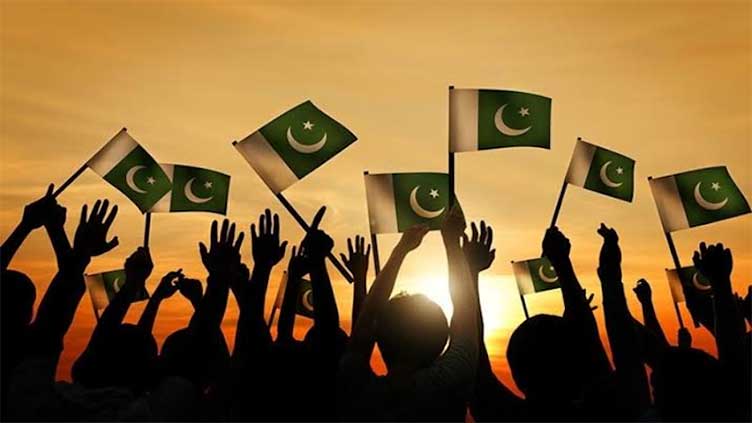VIEWPOINT: Pakistan faces the question of survival

Pakistan
Pakistan has proven to be a "Resilient Republic" surviving against all odds
ABU HURAIRA
Pakistan has been a land of endless turmoil ever since its independence from the British rule in 1947. From a crippled economy to a paralysed security apparatus, Pakistan has survived it all. However, the nation now faces a much greater challenge - the breakdown of moral and ethical standards. This issue has infiltrated every aspect and institution of society, including politics and judiciary. It has torn the social fabric apart.
Over the past decade, Pakistan has witnessed security forces violating the sanctity of private property. Citizens shoot directly at security forces, merely for trying to implement orders from high-ups. The country is so polarised that supporters of one political party are willing to annihilate those of another party over political differences. Pakistan has fought three wars against a much larger enemy and survived. The country also fought a foreign war in Afghanistan and against terrorism, almost winning the battle. However, the challenge facing Pakistan now is from within, and it is a daunting one.
In the past, wars were fought with weapons and strategic thinkers put their minds together to win battles. However, the current challenge is from within, and it requires a different approach. Despite other states having moved on from providing basic necessities to striving for providing higher standards of living for their citizens, Pakistan is still grappling with the same old challenges. Corruption, political victimisation and an inability to provide basic necessities such as food and education to millions of citizens are just some of the issues that still plague the country.
Pakistan's leaders are stuck in a game of blame and pride, unable to move past their egos. This lack of progress has resulted in a "Chaotic Republic" where survival is the only goal. However, Pakistan has also proven to be a "Resilient Republic" surviving against all odds.
The current state of affairs in Pakistan suggests that the country is facing a far greater challenge than ever before. The recent turf war between the Pakistan Tehreek-e-Insaf (PTI) and the Pakistan Democratic Movement (PDM) is a testament to the chaos that has engulfed the country.
The situation escalated when PTI leader Imran Khan was arrested in the Al-Qadir Trust case. The PTI supporters refused to accept the arrest and took to the streets in violent protests, resulting in arson and vandalism of public property, attacks on army installations and defacing of portraits of martyrs.
Even symbols of pride, such as old air force jets installed at various locations, were set on fire. The Radio Pakistan building in Peshawar was also burned down, adding to the destruction. The situation worsened when courts granted blanket bail to Imran Khan, resulting in severe criticism from the opposition PDM.
The PDM leader, Fazlur Rehman, staged a protest outside the Supreme Court to protest against court's alleged biases in favour of the PTI.
The politics of Pakistan has now reached a point of no return, with some government officials even calling for a ban on the PTI, declaring the party a terrorist organisation. This has created an atmosphere of fear and violence, which is detrimental to the country's progress. In such a polarised society, it is impossible to create a sense of national unity or to work towards common goals.
The game of politics has now been transformed into a game of survival and politicians want complete annihilation of rival political parties. This dirty game is nowhere near to end and no solution is in sight unless and until the politicians decide to let go of their ego and sit together for removal of non-democratic forces from political process. If politicians don’t sit together, the state will suffer.
The ongoing crisis in Pakistan highlights the need for a new approach to governance in the country. The current political system is plagued with corruption and victimisation, with leaders more focused on blame game than on addressing the needs of the people.
The country's economy is crippled, with millions of citizens struggling to make ends meet. The education system is inadequate, leaving many young people without the skills they need to succeed in life.
Pakistan must learn from the successes of other countries and focus on providing its citizens with the basic necessities of life. This means investing in education, healthcare and infrastructure, and addressing the issues of corruption and political victimisation.
The country must also work towards creating a sense of national unity and addressing polarisation in society. This can only be achieved through a concerted effort by the government, civil society and the people of Pakistan.
The ongoing political crisis is just the latest manifestation of the deeper issues that plague the country. To move forward, Pakistan must learn from its past mistakes and focus on building a better future for its citizens. This will require a new approach to governance, a renewed focus on the needs of the people, and a commitment to creating a sense of national unity. Only then can Pakistan truly become a resilient republic, capable of withstanding the challenges that lie ahead.
In conclusion, Pakistan faces numerous challenges, but it has also shown remarkable resilience in the face of adversity. The breakdown of moral and ethical standards is a significant challenge that requires urgent attention. However, by learning from the past and focusing on a better future, Pakistan can overcome its challenges and become a stronger, more prosperous nation.

